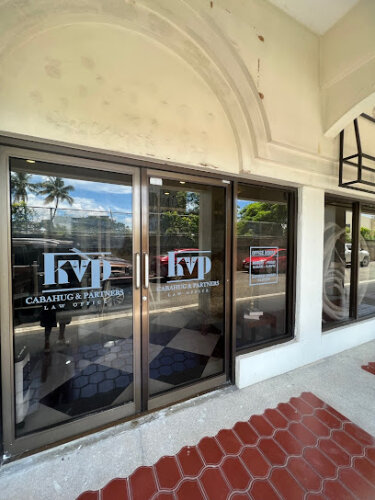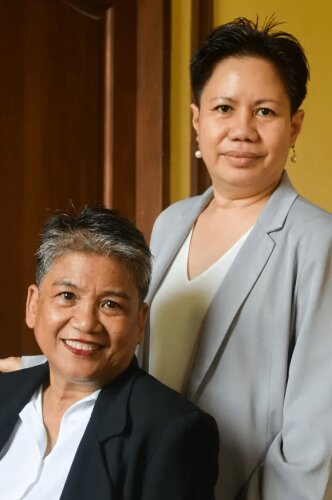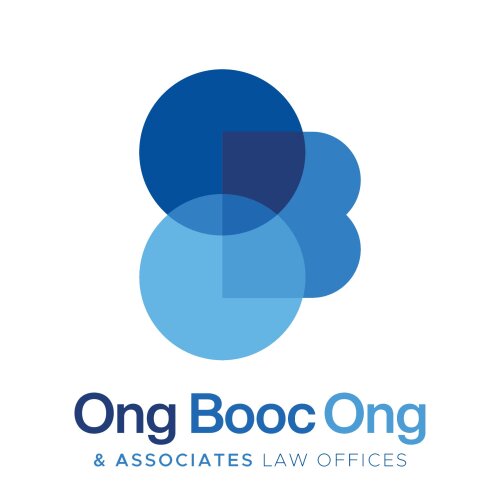Best Collaborative Law Lawyers in Cebu City
Share your needs with us, get contacted by law firms.
Free. Takes 2 min.
Free Guide to Hiring a Family Lawyer
List of the best lawyers in Cebu City, Philippines
About Collaborative Law in Cebu City, Philippines
Collaborative Law is an approach to legal dispute resolution where parties work together with their lawyers to reach a mutually agreed-upon settlement without going to court. In Cebu City, this practice is gaining popularity due to its emphasis on cooperation, openness, and respect, making it particularly favorable in familial and civil matters. Collaborative Law strives to maintain relationships and alleviate the adversarial nature of traditional litigation, offering a more amicable and less costly alternative to resolving conflicts.
Why You May Need a Lawyer
Individuals may seek a lawyer specializing in Collaborative Law for various reasons. Common situations include divorce, child custody arrangements, and property disputes, where maintaining a cooperative relationship can significantly benefit all parties involved. Additionally, businesses may use collaborative approaches to settle contract disputes or partnership disagreements. By engaging a lawyer, clients can navigate legal complexities more effectively and ensure that the resolution of disputes aligns with legal standards and their personal or professional goals.
Local Laws Overview
Cebu City, like the rest of the Philippines, operates under a judicial system heavily influenced by both civil law and customary practices. The rules surrounding Collaborative Law are still evolving, but they emphasize voluntary participation, confidentiality, and full disclosure among parties. Philippine law encourages alternative dispute resolution methods, and Collaborative Law fits within this framework by promoting negotiation over litigation. Understanding the local legislative context is crucial, as procedural rules and regulations can impact the collaborative process.
Frequently Asked Questions
What is Collaborative Law?
Collaborative Law is a method for resolving legal disputes where both parties commit to working together with their lawyers to find an amicable settlement without going to court.
How does Collaborative Law differ from traditional litigation?
Unlike traditional litigation, which often involves adversarial proceedings in court, Collaborative Law focuses on open communication and problem-solving, aiming to reach a mutually beneficial settlement.
Is Collaborative Law legally recognized in the Philippines?
Yes, Collaborative Law is legally recognized as a form of alternative dispute resolution and is supported by Philippine law, though it is not as formalized as other forms of mediation or arbitration.
What situations are suitable for Collaborative Law?
This method is especially suitable for familial issues such as divorce and child custody, as well as civil matters like property disputes and contract negotiations.
Do I still need a lawyer for Collaborative Law?
Yes, having a lawyer is crucial as they provide legal guidance, ensure proper procedures are followed, and help protect your rights throughout the process.
How does one start the Collaborative Law process?
To start, parties engage lawyers trained in Collaborative Law and agree to a participation agreement that outlines the process and commitment to resolving the dispute collaboratively.
What happens if the collaborative process fails?
If the collaborative process is unsuccessful, the involved parties may choose to proceed to litigation, and generally, their collaborative lawyers cannot represent them in court.
How long does the Collaborative Law process typically take?
The duration varies greatly depending on the case's complexity and the parties' willingness to cooperate. Generally, it tends to be quicker than court proceedings.
Is Collaborative Law confidential?
Yes, one of the core principles of Collaborative Law is confidentiality, which allows parties to communicate openly without fear of information being used against them in court.
How are settlements reached in Collaborative Law enforced?
Once a settlement is reached, it is documented in a legally binding agreement, which can be enforced by the court if necessary.
Additional Resources
For further assistance in Collaborative Law, individuals can reach out to organizations such as the Integrated Bar of the Philippines Cebu Chapter, as well as local governmental bodies like the Department of Justice and court annexed mediation services. Professional legal associations and law firms specializing in family and civil law in Cebu City can also provide valuable support and guidance.
Next Steps
If you are considering Collaborative Law for resolving a legal matter, the first step is to consult with a lawyer who specializes in this field. Look for professionals with experience in collaborative practices and schedule an initial consultation to discuss your situation and options. It’s essential to understand the nature of the process, your commitments, and how it can benefit your specific circumstances. Always ensure that any agreements made are clearly documented, and remember that maintaining integrity and open communication are key to a successful collaborative process.
Lawzana helps you find the best lawyers and law firms in Cebu City through a curated and pre-screened list of qualified legal professionals. Our platform offers rankings and detailed profiles of attorneys and law firms, allowing you to compare based on practice areas, including Collaborative Law, experience, and client feedback.
Each profile includes a description of the firm's areas of practice, client reviews, team members and partners, year of establishment, spoken languages, office locations, contact information, social media presence, and any published articles or resources. Most firms on our platform speak English and are experienced in both local and international legal matters.
Get a quote from top-rated law firms in Cebu City, Philippines — quickly, securely, and without unnecessary hassle.
Disclaimer:
The information provided on this page is for general informational purposes only and does not constitute legal advice. While we strive to ensure the accuracy and relevance of the content, legal information may change over time, and interpretations of the law can vary. You should always consult with a qualified legal professional for advice specific to your situation.
We disclaim all liability for actions taken or not taken based on the content of this page. If you believe any information is incorrect or outdated, please contact us, and we will review and update it where appropriate.
















